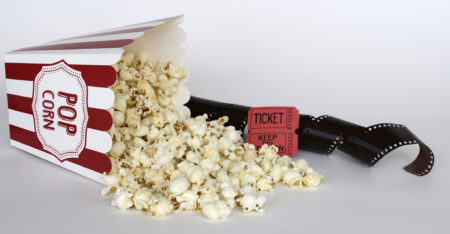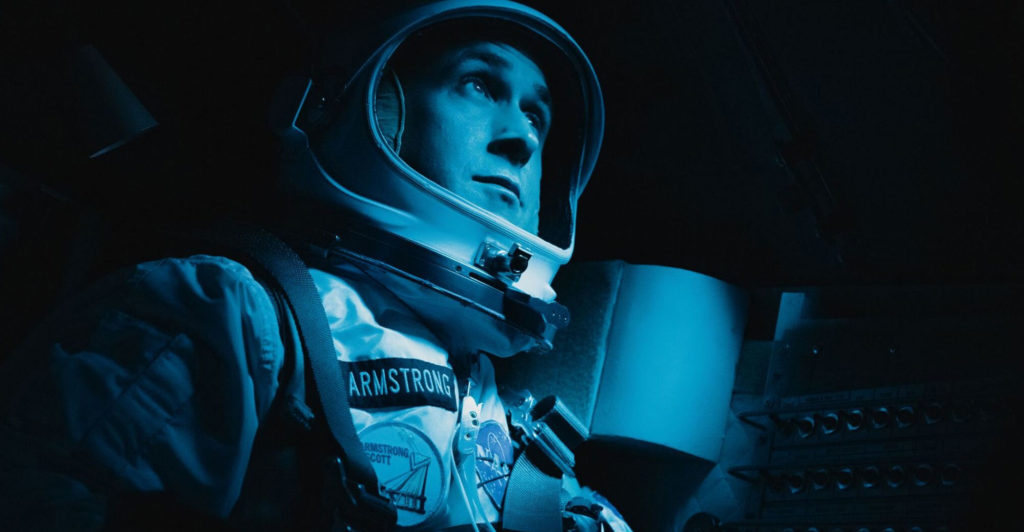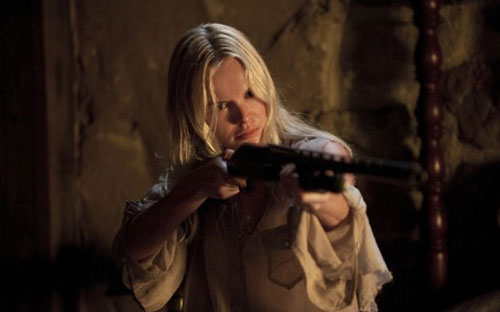
Few films have provoked as much controversy and heated debate as Straw Dogs, the classic 1971 revenge thriller from Sam Peckinpah. Pauline Kael, an admirer of the director, famously called it “the first American film that is a fascist work of art” — and that was in a review that was mostly positive.
Roger Ebert, one of the few critics to recognise Peckinpah’s earlier blood ballet The Wild Bunch as a classic upon its release, detested Straw Dogs for its commitment to “the pornography of violence”. Forty years later, Straw Dogs is still condemned and defended as passionately as A Clockwork Orange, which was released in the same year.
Rod Lurie’s pointless new remake of the landmark film, by contrast, provokes little more than mild irritation. Lurie — the director of exercises in wet liberalism such as The Last Castle and The Contender — tries to smooth away the rough edges of Peckinpah’s tough-minded film to make it more palatable.
He dispenses with Peckinpah’s moral ambiguities. The Lurie version is more immoral than Peckinpah’s version as a result — an ideological fudge with a smug subtext about how Hollywood sees itself as a vanguard against the barbarism of Tea Party conservatism.
For Lurie’s version, the action of the home invasion thriller is transplanted from the remote reaches of rural England to the Deep South of the US, though it follows the story that Peckinpah took from the novel The Siege of Trencher’s Farm fairly closely.
David Sumner, in this version an LA scriptwriter played by James Marsden, takes his actress wife Amy (Kate Bosworth) back to her hometown for the first time in years. Here, he hopes to knuckle down and finish a script at her late father’s isolated farmstead.
But tensions begin to simmer between the Hollywood couple and the local yokels, particularly a former high school football hero who used to date Amy. The friction quickly escalates into open conflict, culminating in an orgy of bloodletting as David tries to protect his home and wife from the enraged rednecks in the film’s infamous climactic siege.
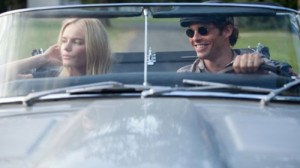
Peckinpah used this material to explore the animal heart beating in the chest of the most mild-mannered man. His film is about the irony of civilisation: that it is only upheld by the threat of violence. It is David’s moral and physical cowardice that sets the terrible events of the film in motion. Lurie, however, says his film is about a man finding his inner hero. For his next film, he should consider remaking Taxi Driver as a man’s journey to sanity.
Though Peckinpah’s original is often condemned as a celebration of violence, this is a criticism that is actually more valid for Lurie’s version. The audience shares David’s ghoulish delight in the carnage of Peckinpah’s film, but this is balanced by a downbeat denouement hinting at the horrors in the wreckage. Lurie’s film ends on a note of triumphalism that is far more sickening than the conclusion of Peckinpah’s Straw Dogs.
Peckinpah’s film, for all of its ugliness, treats the audience like adults. Not so Lurie’s version, which is replete with heavy-handed metaphors, such as the fact that David is working on a script about the Battle of Stalingrad. Peckinpah trusted you to work out the meaning of his title; Lurie explains his interpretation in a contrived piece of dialogue.
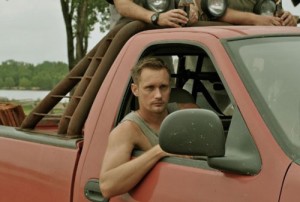
X-Men star Marsden is an interesting casting decision for David, one clearly meant to escape comparisons with Dustin Hoffman’s subtle performance in the original film. But turning David from a nerdy mathematician into a handsome, Harvard-educated member of the Hollywood elite robs him of any audience sympathy.
His self-satisfied grin, the way he throws his cash around in a backwater town and his condescension to the locals endear him to the audience as little as they do to the townsfolk. Perhaps the biggest failing of Marsden’s performance is that he is not able to sell the crucial moment when David breaks and decides to fight back.
Amy, a character roughly used by Peckinpah, is arguably treated even more despicably than she was in the original. As portrayed by Bosworth, she’s alternately coquettish and shrewish, a character lacking in the psychological dimensions that Susan George originally brought to her.
In Peckinpah’s film, Amy is attracted to David because he is kinder and gentler than men like Charlie, but despises him for his timidity. Here, it’s not entirely clear what she saw in him in the first place. The fact that the relationship between the two doesn’t work destroys the central dramatic conflict of the film.
The strongest performances come from the supporting cast of villains, notably James Woods as a washed-up alcoholic football coach and rising star Alexander Skarsgård as Amy’s former boyfriend Charlie.
Sam Peckinpah’s Straw Dogs (via YouTube):
Rod Lurie’s Straw Dogs (via YouTube):
Skarsgård’s performance, hinting at the seething resentment and disappointed dreams under the Southern deference Charlie initially shows the Hollywood couple, is better than the huntin’, shootin’ and God-fearin’ grab-bag of redneck clichés he is given to work with.
Lurie’s Straw Dogs is the worst sort of remake — a vulgarisation that displays both contempt for and a lack of understanding of its source material. Peckinpah’s original is problematic in many ways, especially its gender politics, but it is also a stunning example of the bravura filmmaking technique of one of the greatest action directors of all time.
Just compare the masterful use of space and mise-en-scene in the siege scene or the economy with which Peckinpah sets up the conflicts between his characters to the clumsiness of Lurie’s version, for example. More than that, it has some artistic integrity and psychological depth to it, which is more than can be said for Lurie’s hack job. — Lance Harris, TechCentral
Read more:
- Subscribe to our free daily newsletter
- Follow us on Twitter or on Google+ or on Facebook
- Visit our sister website, SportsCentral (still in beta)


